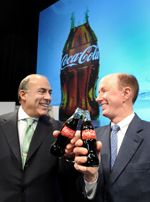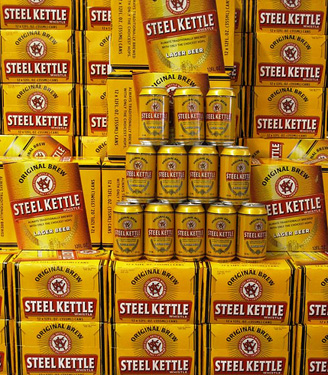The Concise covers every aspect of brewing from grain to glass, with content designed by the WBA partners of Siebel Institute of Technology and Doemens Academy, two of the world’s leading brewing schools.
EBITDA rose 16 percent to MXN 5.45 billion (EUR 317 million), and operating profit was up 18 percent at MXN 4.65 billion (EUR 271 million) in the fourth quarter.
If The Coca-Cola Company’s executives were politicians, they would now be awarded the title “flip-floppers”. Because if you look at the deal more closely, it represents nothing less than a total about-face on corporate dogma. It had been Roberto Goizueta, CEO of Coca-Cola Company between 1980 and 1997 who decided over twenty years ago to cut the number of bottlers to a few anchor bottlers so that CCC could focus on brand building.
For those working in a laboratory, using conventional plating and microscopy, the Essential Brewing Microbiology Track is the right choice, offering two weeks of instruction in the bedrock principles of brewing laboratory operations.
The combined U.S. operations of SABMiller and Molson Coors Brewing with brands such as Miller Lite and Coors Light, said underlying net income in the October-December 2009 quarter was USD 106.1 million with net sales dipping 1.6 percent to USD 1.71 billion.
Paris Hilton stars in Brazil in an advertising campaign by Schincariol. The brewer is launching a new product called “Devassa Bem Loura”. Devassa, a lager microbrewery, originally from Rio de Janeiro, was bought by the privately-owned Schincariol Group in 2007.
For those looking for training that will take them from little-to-no knowledge of draught to complete understanding of the technology, the 4-day Siebel Draught Master Programme (22 – 25 March 2010 in Golden, Colorado) will build knowledge through extensive and in-depth content.
Punters looking for exotic beers at the Whopper Bar will be disappointed. Burger King is starting out with selling domestic brands like Miller and Budweiser and will consider other beers down the road.
The finance minister said the proceeds from these tax increases will go to finance rising spending in health coverage in 2010 and beyond, so the effect on the government’s budget deficit will be neutral.
Tesco, the world’s number three retailer, opened its first U.S. Fresh & Easy convenience store in 2007 amid much speculation whether it would make it on the U.S. market.


